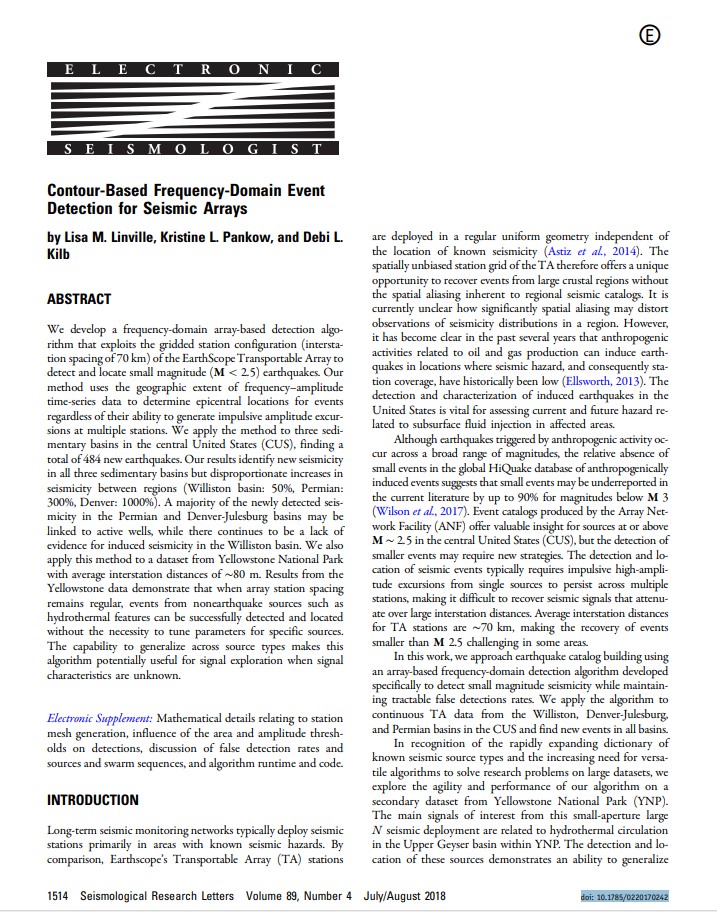We develop a frequency-domain array-based detection algorithm that exploits the gridded station configuration (interstation spacing of 70 km) of the EarthScopeTransportable Array to detect and locate small magnitude (M < 2:5) earthquakes. Our method uses the geographic extent of frequency–amplitude time-series data to determine epicentral locations for events regardless of their ability to generate impulsive amplitude excursions at multiple stations. We apply the method to three sedimentary basins in the central United States (CUS), finding a total of 484 new earthquakes. Our results identify new seismicity in all three sedimentary basins but disproportionate increases in seismicity between regions (Williston basin: 50%, Permian: 300%, Denver: 1000%). A majority of the newly detected seismicity in the Permian and Denver-Julesburg basins may be linked to active wells, while there continues to be a lack of evidence for induced seismicity in the Williston basin. We also apply this method to a dataset from Yellowstone National Park with average interstation distances of ∼80 m. Results from the Yellowstone data demonstrate that when array station spacing remains regular, events from nonearthquake sources such as hydrothermal features can be successfully detected and located without the necessity to tune parameters for specific sources. The capability to generalize across source types makes this algorithm potentially useful for signal exploration when signal characteristics are unknown.
5
Contour-Based Frequency-Domain Event Detection for Seismic Arrays
Lisa M. Linville, Kristine L. Pankow, and Debi L. Kilb
Penerbit :
Seismological Research Letters
Tahun :
2018
epaper
Geofisika
-
No Scan-
-
No Klasifikasidoi: 10.1785/0220170242
-
ISBN-
-
ISSN-
-
No Registrasi-
-
Lokasi TerbitUSA
-
Jumlah Hal10
-
Label-
-
Versi DigitalTIDAK
-
Versi FisikTIDAK
-
Lokasi Rak Buku Fisik//
-
Jumlah Exemplar Fisik Tersedia-




